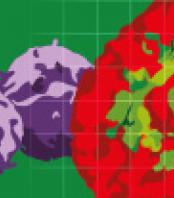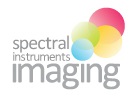Agilent provides xCELLigence impedance-based, label-free, real time cell analysis system and NovoCyte flow cytometers.

Automated microscopy and Spatial Proteomics
Real-time, label free cell analysis
Nano and micro particle analysis

Accelerate to discover
Related topics
Automatic, Real Time Acquisition of Bioluminescent Kinetic Curves

Jun 27, 2024
Watch this pre-recorded webinar with Dr. Andrew Van Praagh to learn how our new Aura software feature —Kinetics—...
Theranostics: From Mice to Men and Back

Jun 25, 2024
Recorded webinar
Presenters: Prof. Dr. Ken Herrmann and Prof. Dr. Katharina Lückerath – Moderator: Hannah Notebaert
Orion 2024 AACR poster: 17-plex single-step stain and imaging of cell Lung Carcinoma

Jun 21, 2024
RareCyte Orion is a benchtop, high resolution, whole slide multimodal imaging instrument. A combination of quantitative...
New release now available: Cytek Amnis AI v3.0 Software

Jun 17, 2024
The new Cytek Amnis AI v3.0 image analysis software features an integrated transfer learning algorithm, an option to...
Cytek webinar: Imaging Flow Cytometry for Chromosomal Assessment in Hematological Malignancies

Jun 7, 2024
In this webinar, we will describe a new innovative approach we developed that resolves these limitations. The method...
Hypoxia in the Tumor Immune Microenvironment (TIME)

Jun 6, 2024
Thursday, 11 July 2024, 16:00 CET | 10:00 EST
Zaver M. Bhujwalla, PhD
X-RAD 320 for irradiation therapy during quantifying study for in vivo collagen reorganization

Jun 5, 2024
Quantifying in vivo collagen reorganization during immunotherapy in murine melanoma with second harmonic generation...
Use of MRI and microCT to evaluate gene therapy for the treatment of discogenic back pain

Jun 4, 2024
MRI images were obtained using the 9.4T Bruker BioSpec system, equipped with 40 mm 1H quadrature volume resonator, and...

Mar 22, 2016
Over the last two decades, a number of blockbuster drugs have been withdrawn or have incurred safety warnings by regulatory agencies due to adverse cardiac effects. In addition, lead compounds or drug candidates are frequently terminated at late stages of drug development due to cardiac safety concerns. Both of these factors can significantly impact the overall cost of drug discovery; consequently, pharmaceutical companies and regulatory agencies have implemented procedures to address these issues.
Most, if not all, in vitro assay systems for cardiac safety are designed to screen for surrogates of arrhythmia, such as hERG channel interaction, rather than arrhythmia itself. Assays designed to screen for compounds that may affect repolarization and induce arrhythmia in the context of the whole heart or heart tissue are not implemented until much later in drug development. These include sophisticated, technically demanding, lowthroughput, and costly procedures such as the Purkinje fiber assay, ventricular wedge assay, and the Langendorff whole heart assay, or telemetry experiments in live and anesthetized animals. The field of preclinical cardiac safety can certainly benefit from an assay system that allows for integrated assessment of compound action on ion channel and non-ion channel targets involved in cardiac excitation-contraction coupling.
The RTCA Cardio Instrument in conjunction with iCell Cardiomyocytes comprises an assay system providing integrated assessment of compound action on multiple targets involved in heart function. This assay system can sensitively and quantitatively detect the effect of compounds on the major ion channels involved in heart function, namely calcium, sodium, and potassium channels. Another major advantage of the assay system is the time resolution. The RTCA Cardio Instrument has a data acquisition rate of 12.5 ms per well of a 96-well plate and can be used simultaneously to monitor acute and chronic drug effects up to days and weeks. The utility of the time-dependent monitoring of compound action on cardiomyocytes can be demonstrated by testing compounds that acutely and directly block hERG channels (E4031, cisapride, etc.) and compounds that interfere with protein trafficking (pentamidine) in a sub-chronic manner. The RTCA Cardio Instrument is able to detect the effects of these compounds on the beating rate and duration of iCell Cardiomyocytes.
The xCELLigence System RTCA Cardio Instrument, in conjunction with iCell Cardiomyocytes, represents a physiologically relevant and predictive assay system for preclinical cardio-safety assessment of lead compounds. The features of this assay system, including time resolution, dynamic monitoring of mechanical beating activity of cardiomyocytes, and 96-well throughput, will surely provide additional mechanistic and toxicity information for compound action on the heart.
Related technologies: Real-time, label free cell analysis
Brand profile
Agilent provides xCELLigence impedance-based, label-free, real time cell analysis system and NovoCyte flow cytometers.
More info at:
www.aceabio.com